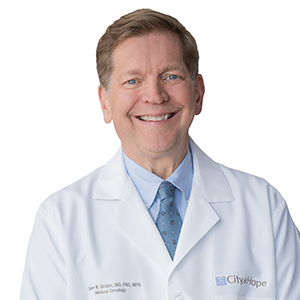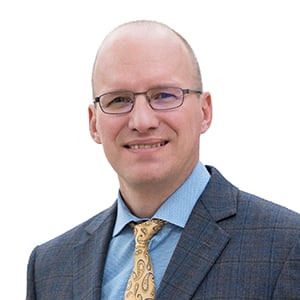Every year on Feb. 4, we recognize World Cancer Day, an initiative dedicated to uniting the cancer community to help reduce the global cancer burden, promote greater equity and integrate cancer control into the world health and development agenda.
As in the previous two years, this year’s World Cancer Day theme is Close the Care Gap. Leaders are called on to prioritize equitable cancer care and eliminate health inequities by focusing on their root causes, creating innovative strategies to address them and investing the necessary resources to achieve a just and cancer-free world.
Disparities in cancer care can arise from various factors, including race, age, gender, socioeconomic status, geographic location and inequities in healthcare infrastructure. According to a recent report from the American Cancer Society, survival after a cancer diagnosis is shorter for people of all races who have a lower socioeconomic status and who live in more rural areas. People of color have higher incidence rates than white people for cancers caused by infection, and Black people are the least likely of all racial groups to have an early-stage diagnosis of cancers that have recommended screening tests.
Additionally, people living in counties with the highest average household income are more likely to have an early-stage cancer diagnosis, thus improving their chances of survival, than those who do not. Eradicating these gaps is necessary to guarantee that everyone, regardless of their background or circumstances, has equal opportunities for and access to early detection, timely treatment and appropriate supportive care services.
At City of Hope, addressing the cancer care gap is of the utmost importance, and our leaders are answering the call.
How We Are Closing the Gap

Health equity is at the heart of the work that many of our clinicians and researchers do, including world-renowned genomics expert John D. Carpten, Ph.D., who recently joined City of Hope as director of the comprehensive cancer center, director of Beckman Research Institute of City of Hope and chief scientific officer. With his hiring, Carpten is one of only five Black directors at National Cancer Institute-designated cancer centers.
“Cancer prevalence and death rates are still much higher for individuals from underserved communities, especially when we consider Black and brown people. Economically disadvantaged and racially diverse communities continue to face systemic barriers that limit their ability to access specialized, lifesaving care,” said Carpten, the Irell & Manella Cancer Center Director’s Distinguished Chair and the Morgan & Helen Chu Director’s Chair of the Beckman Research Institute.
“Affected communities and researchers must partner to identify and mitigate those factors that dictate disproportionate incidence and mortality rates between populations,” he continued. “By uncovering genetic variations and the socioeconomic risk factors behind every person’s cancer, we can offer new strategies in education, early detection and intervention.”
In Orange County, Edward S. Kim, M.D., M.B.A., physician-in-chief, City of Hope Orange County, vice physician-in-chief of City of Hope National Medical Center, and the Construction Industries Alliance City of Hope Orange County Physician-in-Chief Chair, has recruited a team of renowned, multilingual physician-scientists, developed crucial partnerships in the community and built new clinical programs. He has also led the effort to rewrite clinical trial requirements, making them more accessible to diverse patient populations. Kim was named a 2023 Modern Healthcare Top Diversity Leader in recognition of his work.

“Members of our community — regardless of their ethnicity, race, gender, income or ZIP code — should have equitable access to lifesaving cancer research and treatment,” said Kim, the Construction Industries Alliance City of Hope Orange County Physician-in-Chief Chair. “Nineteen out of 20 patients with cancer cannot enroll in clinical trials because of rigid and antiquated eligibility criteria. We have been working hard to change that and are continuing this important work.”
City of Hope also champions a public policy agenda focused on ensuring that patients and families from diverse backgrounds have equitable access to the highest quality cancer treatment. In 2023, the California Cancer Care Equity Act (SB 987) took effect, broadening access to specialized cancer care for Medi-Cal patients with complex cancer diagnoses. City of Hope supported this groundbreaking legislation from its inception and now, the most vulnerable populations in California can seek optimal cancer care services more easily, such as genomic testing, precision medicine-based care, subspecialty expertise and clinical trials.
Barriers to Precision Medicine

City of Hope is also ensuring that precision oncology is available to the broadest possible population — regardless of race, socioeconomic status, insurance provider or geography — and those efforts are helping to correct longstanding disparities in access to genetic information that can be key to receiving the best cancer care. According to Stephen Gruber, M.D., Ph.D, M.P.H., vice president of City of Hope National Medical Center and the Eva and Ming Hsieh Family Director's Chair of the Center of Precision Medicine, the aim should be to move away from waiting to find out if a patient qualifies for molecular testing.
"Those criteria are established in part by insurers to determine whether testing should be reimbursed," said Gruber. " In our view, if you are a cancer patient, molecular testing is essential.” As part of City of Hope’s INSPIRE (Implementing Next-generation Sequencing for Precision Intervention and Risk Evaluation) study led by Gruber, such genetic testing is offered free to all City of Hope patients, both to determine if there is inherited risk and to examine tumor cells for mutations that can be targeted by specific cancer treatments. To date, more than 15,000 patients have been tested, with about 20% testing positive for a disease-causing gene variant.
Race and Gender Issues Affecting Cancer Risk

Black women have 41% higher breast cancer mortality than white women despite lower breast cancer incidence, and Black women are also less likely than white women to be diagnosed with localized-stage breast cancer. Additionally, Black women have lower survival rates for every stage of disease, according to the latest American Cancer Society data. To help address this gap in treatment outcomes, City of Hope is implementing leading-edge advances in oncologic care worldwide.
“We are making waves in global oncology to enhance breast cancer care around the world — we’re expanding not just with our new sites in Atlanta, Phoenix and Chicago, but internationally as well. We’re taking on health care disparities with more and more research, such as my study looking at how different genes may create disparate outcomes in Black and white breast cancer patients,” said Veronica Jones, M.D., chief of City of Hope’s Division of Breast Surgery in the Department of Surgery.
Lesley Taylor, M.D., assistant clinical professor in the Division of Breast Surgery, has long worked on various global health initiatives to improve breast cancer diagnosis and treatment for women in Ethiopia. She currently serves as a technical consultant for the World Health Organization’s Global Breast Cancer Initiative Working Group 3, “Breast Cancer Treatment and Supportive Care.”
In the area of men’s health, Black men are 1.7 times more likely to be diagnosed with and 2.1 times more likely to die from prostate cancer than white men, and City of Hope is working to uncover the reasons for this disparity. Last September, City of Hope researchers shared the results of a clinical trial that identified four biomarkers linked to increased risk of metastatic prostate cancer in men of West African heritage.
“We have identified genetic and molecular changes that can be developed into a tool to predict which Black men are at the highest risk of developing metastatic prostate cancer,” said principal investigator Sarah Shuck, Ph.D. “This test would give doctors the ability to more accurately predict patients’ prognoses and equip scientists with more data as they work to design therapies that prevent prostate cancer from developing in the first place.”
Looking at Environment, Age
City of Hope is also one of three institutions sharing in a $3 million grant from the National Cancer Institute to establish the Translational Research Center in Lung Cancer Disparities, or TRACER. Working with community groups, health departments and other stakeholders in California, Virginia and South Carolina, TRACER seeks to identify cancer risks specific to Black communities. This research is being conducted in part by Victoria L. Seewaldt, M.D., the Ruth Ziegler Chair in Population Sciences at City of Hope, and Loretta Erhunmwunsee, M.D., a thoracic surgeon and an associate professor at City of Hope's Division of Thoracic Surgery.
Erhunmwunsee’s research has shown that low socioeconomic status is an independent prognostic factor for poor survival in patients with non-small cell lung and esophageal cancer. Among her research interests is a better understanding of why ethnic minorities and poor/underserved populations have worse outcomes and worse quality of life in early-stage lung cancer. She is currently conducting a nonsmall cell lung cancer study that explores the link between lung cancer and structural racism. The study looks at how factors such as personal discrimination and neighborhood conditions can affect lung cancer genes. Most earlier studies that looked at lung cancer genes only focused on white patients. Because of this, there is little information about Black lung cancer genes and what environmental factors may affect them. Lung cancer is the leading cause of cancer death among Black men, so Erhunmwunsee’s research is of vital importance.
Age can be another barrier to the best cancer treatment, and City of Hope’s Department of Supportive Care Medicine provides an array of services and programs that address the many physical and emotional issues that can arise during and after cancer treatment, regardless of a patient’s age, race or socioeconomic status. To improve outcomes and quality of life for older adults, William Dale, M.D., Ph.D., vice chair of academic affairs for the Department of Supportive Care Medicine, helped develop the first-ever American Society of Clinical Oncology geriatric oncology guidelines in 2018. The guidelines, updated in 2023, recommend a thorough assessment of physical and emotional health history before deciding on treatment. These latest guidelines were based on two large, randomized trials published in The Lancet and JAMA Oncology that evaluated the use of a comprehensive questionnaire called a validated geriatric assessment (GA).
“The trials showed that using the GA with assessment-based management led to better outcomes: less toxicity, fewer medicines and better quality of life,” said Dale, the George Tsai Family Chair in Geriatric Oncology. “Until recently, no one would do stem cell transplants for patients older than 70. It should really be about your fitness and ability to go through it” — rather than a person’s age.
Expanding Our Reach
City of Hope has grown tremendously over the last year, establishing a national, integrated cancer care and research system with centers throughout Los Angeles and Orange counties, Phoenix, Atlanta and Chicago. In each of these locations, City of Hope is committed to providing people of all backgrounds with equal access to our medical breakthroughs. We are building bridges to underserved communities, expanding access to genetic testing, increasing diversity in clinical trials and advancing the science to address health disparities. This national model makes City of Hope uniquely equipped to take the lead on abolishing cancer care inequities.

“Having a national, integrated, cancer-focused biomedical system will provide us with access to a really large and very diverse patient population that we can impact, and not only with just high-quality care but also with all the amazing health care innovations — for instance, through the incredible clinical trials platform that’s currently in place here,” Carpten said.
“My goal is to create, execute and advance a transformative vision for cancer research that aligns with national priorities to significantly reduce cancer mortality rates and improve outcomes for patients from all walks of life through the unique national reach of City of Hope,” he added. “This is a dream come true.”
